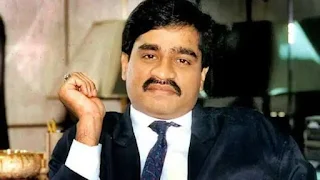Dawood Ibrahim's early life in Dongri, a locality in Mumbai, was unremarkable. However, his path took a darker turn when he became associated with the underworld in the 1970s. He was reportedly involved in smuggling and illegal activities, gaining notoriety for his cunning and ruthless demeanor.
One of the most significant accusations against Dawood Ibrahim is his alleged role in the 1993 Mumbai bombings, which claimed the lives of hundreds and injured thousands. The attacks were orchestrated in retaliation for the communal riots that took place in Mumbai in 1992-1993. Dawood Ibrahim is believed to have fled India shortly before the bombings and has since been elusive, with his whereabouts shrouded in mystery.
Apart from his involvement in terrorism, Dawood Ibrahim is accused of running an extensive criminal empire known as the D-Company. The syndicate is said to be involved in drug trafficking, arms smuggling, and organized extortion, with a global network that spans across Asia, the Middle East, and Europe. The United States and India have designated him as a "Global Terrorist" for his alleged involvement in these criminal activities.
Dawood Ibrahim is believed to have found safe havens in countries like Pakistan and the United Arab Emirates, which has strained diplomatic relations between India and these nations. Despite being on the wanted list of multiple countries, efforts to apprehend him have been largely unsuccessful, leading to speculation about his influence and protection within certain political circles.
The complexities surrounding Dawood Ibrahim's persona extend beyond his criminal activities. Some argue that he might have played a role in funding and supporting extremist groups, further fueling the debate on the nexus between organized crime and terrorism.
In conclusion, Dawood Ibrahim remains a shadowy figure in the world of organized crime, with his alleged involvement in heinous acts continuing to be a subject of international concern. The intricate web of criminal activities attributed to him, coupled with the geopolitical complexities surrounding his whereabouts, paints a picture of a man whose influence transcends borders, leaving law enforcement agencies grappling with the challenges of bringing him to justice.

Comments
Post a Comment